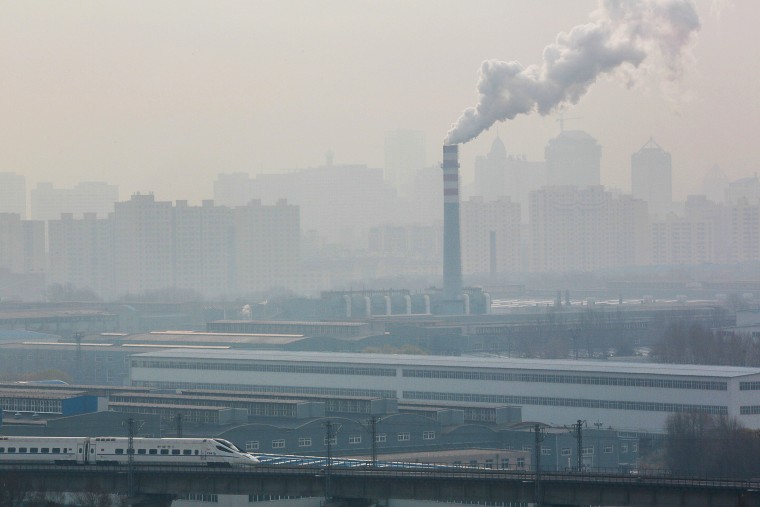The United Nations says the world can affordably fight climate change -- if governments agree to completely stop carbon emissions by 2100, that is.
On Sunday, the United Nations published a synthesis report of its “most comprehensive assessment of climate change ever,” aimed at policymakers. The 40-page report sums up 800 scientists’ thousands of pages of research from over 13 months, using an enormous amount of science to argue that carbon emissions must be dramatically reduced.
It's a big if: Across the world, countries are debating climate change; in the United States, Republicans routinely deny that climate change is man-made at all. They have protested carbon emission cutting measures as job killers, saying they’ll hurt the economy and they aren’t convinced they’ll curb climate change, despite reports like this one that clearly lay out the direct effect of carbon emissions on the globe’s warming.
One such Republican, Wisconsin Rep. Paul Ryan was recently asked if he believes humans cause climate change.
“I don’t know the answer to that question,” he said. “I don’t think science does, either.”
Senate Minority Leader Mitch McConnell told an editorial board that he doesn't know if climate change is real because he is "not a scientist" and would rather encourage his state's energy industry than worry about it.
RELATED: GOP Senate candidates won’t answer on climate change
"Science has spoken. There is no ambiguity in the message. Leaders must act, time is not on our side," U.N. General Secretary Ban Ki-Moon said in Copenhagen on Sunday.
“Continued emission of greenhouse gases will cause further warming and long-lasting changes in all components of the climate system, increasing the likelihood of severe, pervasive and irreversible impacts for people and ecosystems,” the report concludes.
Greenhouse gases are “now higher than ever,” the report notes, and the effects will be devastating if left unchecked. Rising sea levels that could swallow homes and cities, melting sea ice—the kind that recently sent tens of thousands of walruses looking for somewhere to rest—and changing temperatures that threaten everything from agriculture to people’s health.
Scientists and world leaders have outlined that the globe must be kept from rising a full two degrees above pre-industrial levels; we’ve already raised the temperature 0.8°.
“To keep a good chance of staying below 2ºC, and at manageable costs, our emissions should drop by 40 to 70 percent globally between 2010 and 2050, falling to zero or below by 2100,” R. K. Pachauri, Chair of the Intergovernmental Panel on Climate Change that produced the report, said in a release. “We have that opportunity, and the choice is in our hands.”
It’s a similar argument to the White House’s argument that climate change will worsen—and the costs grow—the longer we take to combat it. The president recently announced a plan to curb carbon emissions by a third in just over 15 years; the ruling is currently under review.
